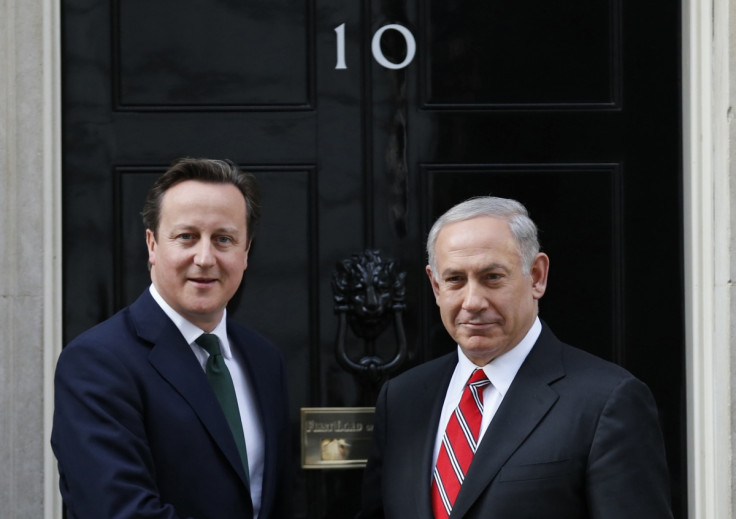David Cameron to Make First Israel Visit as Critics Denounce 'Afterthought' Trip to Palestinian Territories

David Cameron is to make his first visit to Israel and Palestine since becoming UK Prime Minister, but has been criticised for relegating Palestinians to an "afterthought".
Cameron's schedule will see him spend only three hours of a two-day visit in the Occupied Palestinian Territories while the rest will be spent in Israel, where he is set to meet Israeli Prime Minister Benjamin Netanyahu and deliver a speech to the Knesset, Israel's parliament.
The Prime Minister will not follow in US Secretary of State John Kerry's decision to visit Ramallah, the Palestinian administrative capital in the West Bank, but will visit Bethlehem instead to meet Palestinian Authority President Mahmoud Abbas.
"If someone wants to visit Israel, they should visit Israel," Hanan Ashrawi, spokeswoman for the Palestine Liberation Organisation (PLO) said.
"There is no reason to have as an afterthought a symbolic visit to Palestine. This shows the imbalance in the whole situation," she continued.
Despite the criticism, the British premier is to announce more UK support for Palestinian jobs and businesses, including £1.5 million worth of grants for businesses seeking foreign investment and £1.5 million to provide vital skills training to 1,000 female refugees in Gaza.
"We want to see the development of the Palestinian economy and I'll be setting out new UK support to help Palestinian businesses become more competitive. To create new jobs and new industries that will also benefit Israelis next door, where a vibrant economy will find new partners," said Cameron.
He is expected to support peace talks between the two sides of the dispute and promote the rewards that a negotiated peace deal could bring to both parties.
"I want to encourage Prime Minister Netanyahu and President Abbas to build on the strong leadership they have shown so far and to take the final difficult steps towards peace," said the Prime Minister.
"The prize could be great: a stable, prosperous Middle East with a sovereign and viable Palestinian State living in peace alongside a secure Israel at the heart of it. A secure future. A prosperous future. That's what we should all set our sights on," he continued.
Cameron is also expected to encourage more links between the British and Israeli technology sectors.
"There's a real opportunity to strengthen our commercial relationship with Israel," he said.
"Our tech partnership is the strongest of any in the world and we should capitalise on this - creating more jobs back in Britain and delivering economic security for hard-working families.
An Israeli official said the Cameron-Netanyahu talks will focus on "expanding what is a very good bilateral relationship, Iran's efforts to achieve nuclear capability and moving forward on peace between Israel and the Palestinians".
On other issues, Cameron said in a speech in Tel Aviv that the UK is to push for travel bans on "prominent Russian MPs" if talks fail to materialise over the Ukraine crisis.
© Copyright IBTimes 2025. All rights reserved.





















